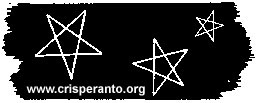|
Quentin Crisp was well into his Blue Period when I first met him in the late 1950s. He had abandoned his redheaded femme fatale persona some years earlier. The blue, or mauve rinse was still in fashion among sophisticated middle-aged women, and Quentin seemed to be following their example. Our meeting took place at 129 Beaufort Street, the lodging house in Chelsea where Quentin occupied a room he hadn’t cleaned in decades. I had been invited there by an actor friend, Gordon Richardson, who lived in marginally less squalor on the ground floor. Quentin wafted into Gordon’s apartment, and Mr. Richardson introduced Mr. Bailey to Mr. Crisp. We sat down to tea and cucumber sandwiches. I can’t remember what we talked about, but I do recall that Gordon removed his glass eye, polished it with a handkerchief and popped it back into its socket while Quentin and I pretended not to notice. The tenants of Number 129 were a pretty odd bunch. Gordon always insisted that Quentin was the only sane person in the building. I think he was probably right. The courteous Mr. Crisp, who never employed first names, appeared to be relatively content with his life in the days before he was famous. He had survived the indignities visited upon him by thugs and bigots with extraordinary grace and good humor. I belonged to a coterie of admirers who delighted in his references to Miss Garbo, Mr. Christ and Mr. The Ripper. He was an accomplished performer, but he was an attentive listener, too. I realized, over the years, that there was a moral purpose to his artificiality. He wanted to be someone he had created all by himself, someone above the usual travails that afflict mankind. The gays who are angry with him for being ostentatiously effeminate and not fighting for liberation have missed the point about him. A man has a right to be as effeminate as he wishes is the simple truth Quentin represented for most of his long life. Perhaps he fought the battle for tolerance and acceptance with his exquisite manners. That he was courageous is beyond a doubt. |
|
Copyright © 2000 by Paul Bailey and Estate of Quentin Crisp. All rights reserved.
|


